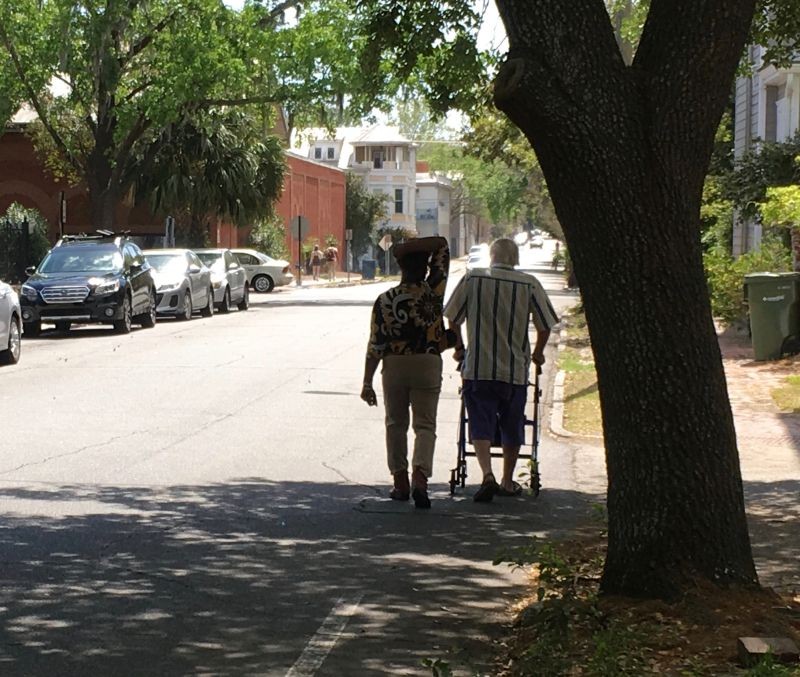Kids always want stuff for Christmas. When I was growing up, bikes were usually high on the list of things kids wanted "Santa" to leave under the tree.
That has changed. The days when bike shops could round out their yearly profits with Christmas bike sales (mainly for kids) are long gone. It seems that even department and toy stores don't sell a lot of bikes at Christmastime, as video games and other electronic toys top "wish lists" today.
Whatever we wanted as kids, our wishes change as we get older. For one thing, those of us who cycle as adults usually buy our own bikes: We become more particular about what we ride, and it's hard to get someone else, even if he or she is inclined to give a bike as a gift, to buy the right one for our style of riding--and, sometimes, even our sense of style.
Then again, for most of us, Christmas becomes less about getting stuff. If anything, we start to care more about other "gifts", which can include experiences or simply knowing that someone is alive and well.
I feel that way about Alan Snel. I have never met him, but I enjoyed reading his blog Bicycle Stories.
Nearly two years ago, he was struck and nearly killed by a driver in--where else?--Florida. That driver didn't get so much as a ticket for leaving Alan with a concussion, spinal fractures and a knee that had to be drained of blood.
He posted several times after that, talking about his move back to Las Vegas (where he'd previously lived and worked) and projects in which he'd gotten himself involved. Then, after a post about the Interbike show in September 2017, there was nothing on his blog. I'd hoped that his absence was a result of plunging himself further into the advocacy work in which he's long been involved.
Turns out, that was the case. He's been writing a book about his road to recovery--which was fueled by his involvement in the budding Las Vegas sports scene-- and is now promoting it. He even got time on a local TV station:
I'm so glad he's back. He's been through so much. But, really, what can stop a man who taught his mother to ride a bicycle when she was 64 years old?
And what more should we want for Christmas than to hear a story like his?
(Ironically, when I saw this segment, it was preceded by an ad for a personal-injury attorney!)
That has changed. The days when bike shops could round out their yearly profits with Christmas bike sales (mainly for kids) are long gone. It seems that even department and toy stores don't sell a lot of bikes at Christmastime, as video games and other electronic toys top "wish lists" today.
Whatever we wanted as kids, our wishes change as we get older. For one thing, those of us who cycle as adults usually buy our own bikes: We become more particular about what we ride, and it's hard to get someone else, even if he or she is inclined to give a bike as a gift, to buy the right one for our style of riding--and, sometimes, even our sense of style.
Then again, for most of us, Christmas becomes less about getting stuff. If anything, we start to care more about other "gifts", which can include experiences or simply knowing that someone is alive and well.
I feel that way about Alan Snel. I have never met him, but I enjoyed reading his blog Bicycle Stories.
Nearly two years ago, he was struck and nearly killed by a driver in--where else?--Florida. That driver didn't get so much as a ticket for leaving Alan with a concussion, spinal fractures and a knee that had to be drained of blood.
He posted several times after that, talking about his move back to Las Vegas (where he'd previously lived and worked) and projects in which he'd gotten himself involved. Then, after a post about the Interbike show in September 2017, there was nothing on his blog. I'd hoped that his absence was a result of plunging himself further into the advocacy work in which he's long been involved.
Turns out, that was the case. He's been writing a book about his road to recovery--which was fueled by his involvement in the budding Las Vegas sports scene-- and is now promoting it. He even got time on a local TV station:
I'm so glad he's back. He's been through so much. But, really, what can stop a man who taught his mother to ride a bicycle when she was 64 years old?
And what more should we want for Christmas than to hear a story like his?
(Ironically, when I saw this segment, it was preceded by an ad for a personal-injury attorney!)
